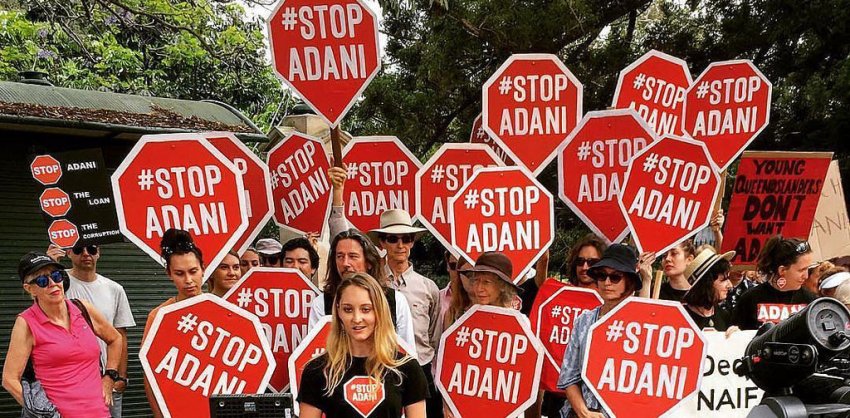
The Environment Defenders Office Queensland (EDO QLD) announced on June 12 that in a huge win for its client the Australian Conservation Foundation (ACF), the federal government has conceded the case brought against it over Adani’s North Galilee Water Scheme — the plan to pump up to 12.5 billion litres of water a year from the Suttor River to Adani’s Carmichael mine site.
This is also a huge win for the broader community, which voiced grave concerns about the effect this project would have on Australia’s precious water resources.
In a humiliating outcome for the federal government, the Minister for the Environment Sussan Ley was forced to admit that in its approval of the scheme on the eve of the federal election, the government had failed to consider all of the thousands of valid public submissions about if and how Adani’s project should be assessed, in direct breach of the Environment Protection and Biodiversity Conservation Act 1999 (EPBC Act).
Thousands of Australians made valid public comments on the scheme, many concerned about the project’s impact on our precious water resources during a time of extreme drought. Those people were denied their right to a voice in this process. This win will ensure their voices are heard.
The minister has now admitted her delegate did not consider these comments, as required by law. In fact, it appears that her department lost an unknown number of public comments made over the controversial project.
This botched process points to a worrying lack of oversight in core assessment procedures designed to protect Australia’s precious water resources.
Now the government will have to open the process of public comment all over again — this time ensuring the community’s voice is heard.
However, Ley did not concede ACF’s initial argument in the case, which was that the “water trigger” should have applied to the scheme.
The water trigger ensures any action that might have a significant impact on water resources and involves a large coal mining development must undergo a more rigorous assessment under the EPBC Act.
The community is still no closer to an answer on why the water trigger should not have applied to the North Galilee Water Scheme. The Australian people have a right to know the impact big projects like this have on their precious water resources.
The Adani propaganda machine has been in overdrive since the Queensland government approved Adani’s Groundwater Dependent Ecosystem Management Plan (GDEMP) on June 13. However, while this was the remaining outstanding environmental obstacle facing Adani, it is not a foregone conclusion that the Carmichael project will be able to proceed. There is potential for further legal challenges to this decision.
A group of seven water scientists have published a review of Adani’s GDEMP and concluded that the Doongmabulla Springs Complex (DSC) faces a legitimate threat of extinction due to the Carmichael Mine project.
The review raised the following key points:
- Adani appears likely to have significantly underestimated future impacts to the Doongmabulla Springs Complex (DSC) arising from the Carmichael Mine.
- Should the Carmichael Mine cause springs within the DSC to cease flowing, this impact may be irreversible.
- The safeguard against DSC impacts proposed by Adani, namely Adaptive Management, is unsuitable and unlikely to protect the DSC from severe degradation or cessation of flow.
- Possible cumulative impacts to the DSC from other mining activities in the Galilee Basin have not been adequately considered.
Review co-author, engineering associate professor Matthew Currell at RMIT, said the assumptions in the modelling and the data provided in Adani’s plan raises concerns.
“The scientific basis needs to be improved,” he said. “And we all need to be much better convinced that Adani can actually protect these springs from extinction. We are of the opinion that there is an eight out of 10 chance that the Doongmabulla Springs will be extinct under the current plans that Adani have put forward.”
He said there are particular concerns around Adani’s claim that the geology would protect the springs from the mine site through an “impermeable layer” between the two. “Now, the data we have seen doesn't agree with that. We think they're making a huge assumption that is really rolling the dice with those springs.”
The Adani Carmichael project has been seen by both coal magnates and the environment movement as the key to opening up the Galilee Basin to exploitation.
Even if Adani manages to jump through all the approval hoops, successfully apply political pressure to both federal and Queensland governments, finance both the mine and rail operations and overcome obstacles to insuring a new coal project, it faces concerted action: both direct action targetting Adani and its contractors and a national mass mobilisation of a determined social movement that has undergone a transfusion of youth.